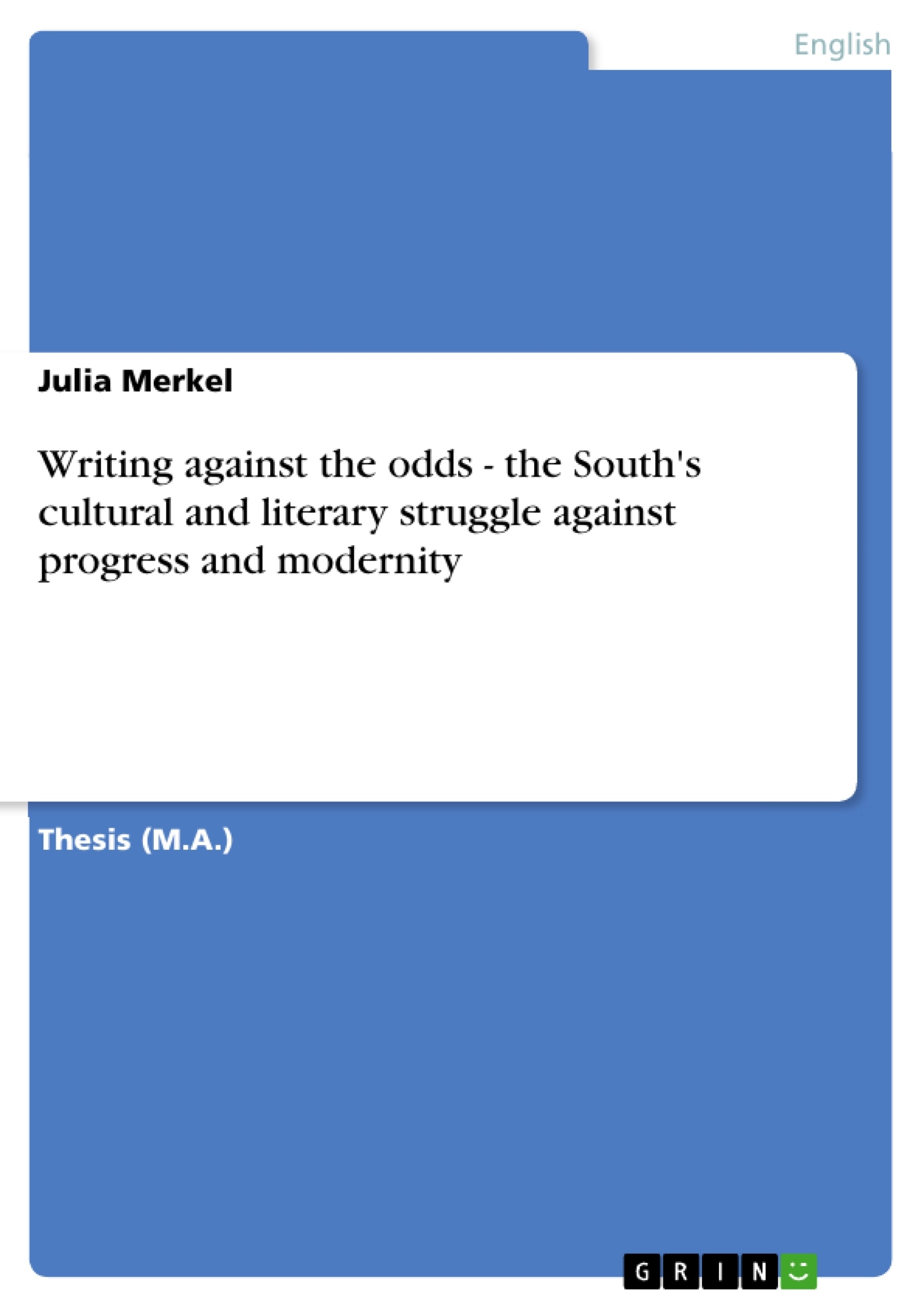“The past is never dead. It is not even past” (Faulkner 1976: 81), the lawyer Gavin Stevens unforgivingly says to Temple Drake in William Faulkner’s Requiem for a Nun during the trial against her maid Nancy, who is accused of killing Temple’s child. Temple has told him, “Temple Drake is dead” (ibid. 80) to emphasize her allegedly changed and improved self and to express her determination not to take any responsibility for her actions in the past. She wants to put everything that has happened behind her and open a new chapter in her life. Stevens can neither accept nor understand such an attitude. For him, Temple’s plan to entirely leave the past behind is futile and impossible to ever become reality. Nothing is ever forgotten or overcome, and the past will influence and haunt anybody trying to escape. The past not only won’t but can’t be subdued.
The ever-reappearing topic of the past overshadowing the presence and determining the future is a Southern subject par excellence. A persistent urge to look back and an almost loathing attitude toward progress and the modern way of life and fast-paced society are omnipresent in Southern culture, literature, and life. Author Allan Gurganus says about his childhood and youth in North Carolina in the 1950s that it was like growing up in the nineteenth century. The South’s past is in its present almost to the point of complete denial of the latter (see Grant 105f.).
The Civil War and the Reconstruction Era left the South economically and culturally isolated. But the War Between the States only finished what had started much earlier. The Southern claim to a special position, its feeling of moral and cultural superiority and distinctiveness, and its chosen isolation have its roots as early as in the beginning 18th century. These feelings and the need to cultivate and preserve a certain type of community and individual perceived as being superior only recurred even stronger after the shameful defeat the South suffered. The gap between the North and the South deepened tremendously, and soon the extreme isolation and seclusion became both voluntary and involuntary. The downfall and the exploitation during the era of Reconstruction left a scar that has been hurting until this present day.
[...]
Inhaltsverzeichnis (Table of Contents)
- Introduction: Resisting and Loathing Modernity
- Southern Literary Tradition
- Historical, Cultural, and Literary Roots
- Historical Roots
- Cultural Roots
- Literary Roots
- Historical, Cultural, and Literary Roots
- Southern Avoidance of Progress and Modernity
- Form: Novel and Short Story
- Motifs, Themes, and Symbols
- Humor
- Despair and Brutalization
- Place
- Nature
- Man and Beast
- Cultural and Literary Identity
- Conclusion: “The Grave in the House”
Zielsetzung und Themenschwerpunkte (Objectives and Key Themes)
This thesis explores the Southern literary tradition and its enduring resistance to progress and modernity. It aims to analyze how Southern writers, from the early 20th century to the present, have consistently addressed themes of the past, cultural isolation, and the struggle against modernization.- The impact of the Civil War and Reconstruction on Southern identity and culture.
- The persistent themes of the past, tradition, and resistance to change in Southern literature.
- The recurring use of specific literary forms, such as the novel and short story, to express Southern perspectives.
- The significance of place, nature, and the relationship between humans and the natural world in Southern writing.
- The enduring influence of Southern literary figures like William Faulkner and Tennessee Williams on contemporary authors.
Zusammenfassung der Kapitel (Chapter Summaries)
The introduction examines the concept of the past's lasting influence on the present in Southern literature, highlighting the theme of resistance to modernity and the importance of tradition.Chapter 1 provides an overview of the Southern literary tradition, exploring its historical, cultural, and literary roots. This section delves into the historical context of the South, including the Civil War and Reconstruction, as well as the development of distinct Southern cultural values and their influence on literature.
Chapter 2 analyzes the Southern avoidance of progress and modernity, examining how Southern writers have chosen to address these themes through specific literary forms, motifs, and symbols. The chapter discusses the prevalence of the novel and short story as favored genres, and explores recurring themes of humor, despair, and the significance of place and nature.
Chapter 3 examines the development of Southern cultural and literary identity, highlighting the ongoing struggle between tradition and change, and how Southern writers have portrayed this conflict in their works.
Schlüsselwörter (Keywords)
The primary keywords and focus topics of this thesis include: Southern literature, Southern identity, tradition, modernity, progress, resistance, Civil War, Reconstruction, place, nature, humor, despair, William Faulkner, Tennessee Williams, Barry Hannah, Larry Brown, Cormac McCarthy.Frequently Asked Questions: Southern Literary Tradition
What is the central theme of Southern literature regarding the past?
As William Faulkner famously said, "The past is never dead. It is not even past." This reflects the South's struggle with its history and its influence on the present.
Why does Southern culture often resist progress and modernity?
This resistance is rooted in a sense of cultural distinctiveness and the economic isolation that followed the Civil War and the Reconstruction era.
Which motifs are typical for Southern writing?
Common motifs include the significance of place, a deep connection to nature, themes of despair and brutalization, and a unique sense of humor.
Who are the most influential Southern authors?
Key figures include William Faulkner, Tennessee Williams, Cormac McCarthy, Larry Brown, and Barry Hannah.
How did the Civil War impact Southern literary identity?
The defeat and subsequent Reconstruction left deep scars, leading to a voluntary and involuntary seclusion that fostered a unique, often loathing attitude towards fast-paced modern society.
- Citar trabajo
- Julia Merkel (Autor), 2008, Writing against the odds - the South's cultural and literary struggle against progress and modernity, Múnich, GRIN Verlag, https://www.grin.com/document/112541



